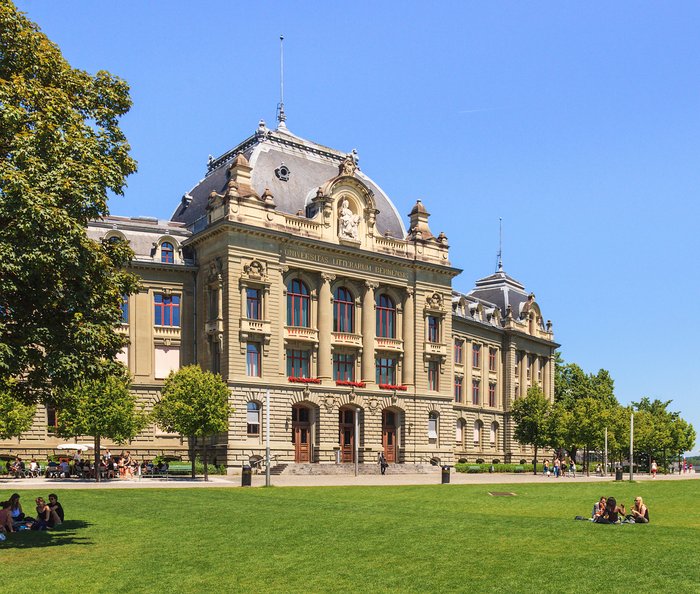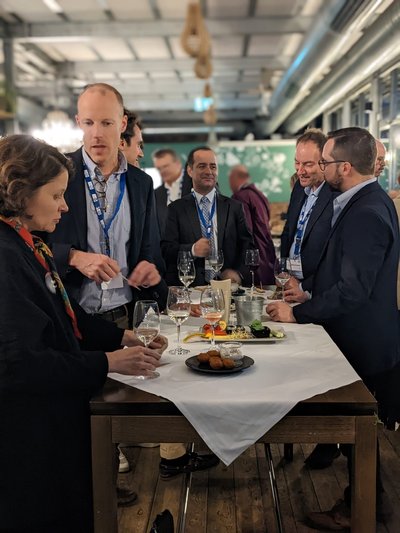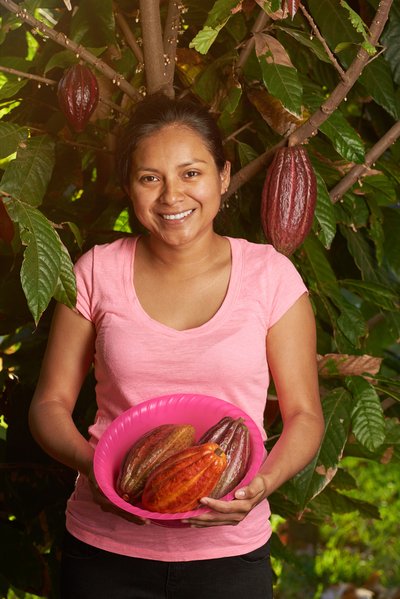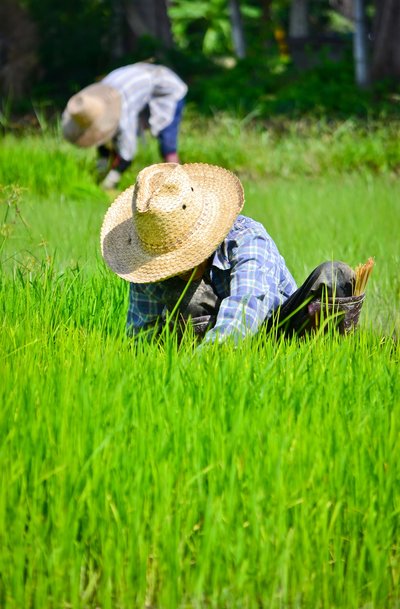Regulatory issues, preferential trade agreements, sustainability impact assessments, governance, climate change, human rights, economic development, and employment and migration - these are areas at the core of economic policy making (public sector) and international business (private sector). The WTI has worked on all of these areas across the world.
Tailor-made courses, training and consulting

Advisory services
Our custom-made offer
- Training of professionals, practitioners and officials in trade and investment-related issues
- Providing platforms for exchange and learning on trade and investment
- Applied studies on trade and investment with a specific focus on sustainable impact assessments
- Trade and investment-related technical assistance and capacity-building services globally
Training of professionals, practitioners and officials
WTI's wide network allows us to put together teams with the right expertise, for any particular course
Countries may put overall strategies in place regarding economic development and engagement in international trade, or they may be in the process of negotiating trade and investment agreements. In doing so, they will be confronted with challenges that are country and development-path specific, as well as with the challenge of needing people with the right skill and competence sets to implement and enforce these strategies.
The WTI training portfolio - focusing on training professionals and practitioners of both the public and private sector - aims to build competences and knowledge through various forms of training activities that take account of personal experiences and exchanges of (global) best practices.
We offers a set of pre-developed training courses (e.g. on investment regulation), adapted to the specific audience, but also builds tailor-made courses. These range from highly individualised, fine-tuned consultative workshops to practice-oriented courses on applied trade regulation or policy and academic seminars on trade policy modelling and principles.
Training takes place either at WTI premises in Bern or at the client's location and can last from a day to several months.
Examples of training courses carried out by the WTI in recent years:
- 2023 - Tailor-made course for officials of the Common Market for Eastern and Southern Africa (COMESA)
- 2023, 2021 - Tailor-made courses for officials of the Department for International Trade, United Kingdom
- 2021-2022 - Provision of WTO-Related Modules in the Academic Programmes of the University of World Economy and Diplomacy (UWED), Uzbekistan
- 2021-2022 - Tailor-made course for officials of the Ministry of Commerce, Kingdom of Saudi Arabia
- 2019, 2020 - Tailor-made course for officials of the Ministry of Commerce and Trade, India
- 2019 - UK Trade Policy Capacity Building, in collaboration with the British Embassy, Bern
For more information on how the WTI can organise a tailor-made course for you and your institution, please contact info.wti@unibe.ch
Providing platforms for exchange and learning on trade and investment
Whatever your role in international trade, there is a platform for you at the World Trade Institute to exchange, learn and network
Being at the forefront of knowledge and research in trade and investment, and continuously applying this research for policy purposes and investment decisions, the WTI is keen to be recognised as a specialised knowledge broker on trade and investments.
We offer platforms for experts, practitioners, business leaders, legislators, and regulators to meet with each other and with leading experts in the field, to exchange views, get updated on latest insights and developments, discuss (future) policies, review existing policies, and shape their thoughts in the areas of trade and investment.
Examples of work:
- World Trade Forum - THE annual event co-organised by the World Trade Institute and the European University Institute, each autumn. It brings together trade policy researchers and practitioners to discuss recent developments in global trade and investment.
- Conference "Sea level rise and its international law implications for legal certainty, stability and human rights" (2023)
- Workshop "The Concept Design of 21 Century Trade Agreements" (2022), with the British Embassy in Bern
- Online conference "Digital Trade in the Post-COVID World", with the National Taiwan University College of Law (2022)
- "Talk on the WTO reforms and on the future of the multilateral trading system" with the Embassy of Switzerland to India (2021)
- Workshop "Trade in Services by Mode of Supply" with the University of Adelaide, Australia
- SECO Roundtable on Trade, Climate Change and SDGs (2021 and 2020)
- Conference "Is a Multilateral Investment Treaty Needed?", co-organised with the World Economic Forum (WEF) (2017)
- Conference on "Investor-state-dispute settlement", co-organised with the World Economic Forum (WEF) (2016)
- Spirit of Bern event on Internet and Digitalisation, Paris Climate Conference, and TTIP for policy makers and professionals, together with the City and Canton of Bern (2016)
- IGIR-WTI Brussels dialogues on TTIP (2014)
- E-15 initiative for the German Marshall Fund, bringing together WTO ambassadors to discuss reform proposals (2015)
- Knowledge-sharing event on the occasion of the creation of the ASEAN Economic Community (2014)
For a full list of all events, conferences and workshops, check out our dedicated page.
Applied studies on trade and investment
We ask how trade and investment provisions are drafted and how they will impact on an economy, specific sectors and citizens
Trade and investment can have broad and diverse effects on societies related, for example, to economic development, sector-specific growth and decline, climate change, employment, human rights and governance. At the same time, trade and investment regulation and the legal frameworks provide the context and mechanisms according to which trade and investment are regulated.
At the WTI, we look at the specifics of trade facilitation, or participation in Preferential Trade Agreements, climate change agreements or investment agreements. Twenty years ago the dominant impact focus was clearly on the economic impacts of such trade and trade policy inititatives and of trade and investment regulation. Currently the WTI specialises in a much broader sustainable impact assessment approach that is much more balanced in terms of the economic, social, human rights and environmental impacts of trade and investment. All four pillars of this approach are equally important. In fact, the broader societal impact approach puts the WTI - as an interdisciplinary institute - in a unique position to combine sustainability with integrated impact assessments and analyses.
Examples of projects the WTI has carried out in this area.
Trade and investment-related technical assistance and capacity building services
We help building competences that allow governments and NGOs to engage in international trade in a sustainable way
WTO members and members of Preferential Trade Agreements can be confronted with challenges that are specific to their status of development, socio-economic and institutional structure.
Government and non-governmental institutions (NGOs) often need to build competences and capacity that allow them to engage in international trade in a balanced way – whereby each of the actors has a role to play in society and stands for specific constituencies. This includes taking into account the country-specific situation.
The abovementioned training portfolio is a specific part of technical assistance and capacity building. In a broader context, the WTI has carried out and participated in other technical assistance projects, among others for SECO.
Examples of technical assistance work:
- SECO-supported ‘Academic Capacity Building project in Trade Regulation’ (WTI, 2016)
- Preparing, Drafting and Negotiating Regional Trade Agreements, Attorney-General’s Chamber of Malaysia (Kuala Lumpur, WTI, May and July 2008; July 2016)
- Advisory services to the Government of Azerbaijan on WTO Accession in the Area of Domestic Support in the Agricultural and Food Sector (2015/GIZ project)
- Advisory work on ASEAN FDI policy (WTI, 2014)
- Agriculture Policy Space for Least-Developed Countries as WTO Members (for a delegation from Nepal, October 2010)






